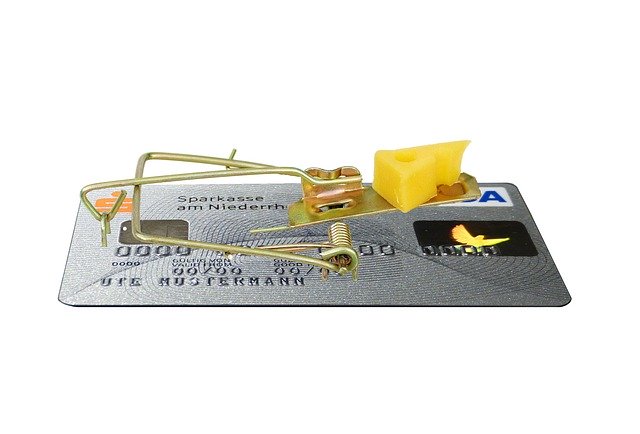The Top Bankruptcy Tips You Cannot File Without
August 20, 2020 - mediadealer - Money Hacks - 2,969 views

Just thinking about bankruptcy is a scary thought for many people. Ever increasing debt, along with the difficulty of supporting a family is very frightening for some people. If it frightens you, or you live this way, the information in this article will be useful for you.
Millions of Americans file for bankruptcy each year because they can not pay their bills. If this is the case for you, you should begin to investigate the legislation in your state. The laws governing bankruptcy vary from state to state. Some states protect your home, and others do not. You should be familiar with the laws for your state before filing for bankruptcy.
Do some research online about personal bankruptcy to get a better idea of what this procedure implies. The United States Some valuable resources include the U.S. Dept of Justice and American Bankruptcy Institute. Knowing as much as possible about bankruptcy gives you an advantage and will help you make the best decision possible.
You must be absolutely honest when filing for personal bankruptcy. If you try to hide any of your information, it will eventually surface and cause you problems. It is necessary to be open regarding both the positive and negative aspects of your financial life. Being honest is both the right thing to do and, moreover, it is required by law.
Don’t pay for an attorney consultation and ask him or her anything you want to know. Most lawyers offer free consultations, so talk to a few before making your decision. Choose to file only if your lawyer has convinced you that this is the best decision. After the consultation, you are not immediately required to come up with a decision. You have lots of time for consulting with other lawyers.
Be sure to hire an attorney before you embark upon filing for personal bankruptcy. With all the ins and outs of bankruptcies, it can be hard to grasp all the knowledge. A lawyer that specializes in bankruptcy can make sure you are following the correct procedures in your filing.
Be sure to weigh all of your options before deciding to file for personal bankruptcy. For example, you may want to consider a credit counseling plan if you have small debts. Sometimes you can negotiate a reduced payment, though you must strive to get it all in writing.
Chapter 7
There are two types of personal bankruptcy: Chapter 7 and Chapter 13. Make sure you know what each entails so you can make the right choice. If you file for Chapter 7 bankruptcy, all of your debts will be eliminated. All the things that tie you to creditors will go away. In a Chapter 13, though, you’ll be put on a payment plan for up to 60 months before being free of your debts. Look into both types of bankruptcy before deciding which one would suit your particular needs.
Thing about filing a Chapter 13 bankruptcy. You are eligible to file Chapter 13 bankruptcy if your income is reliable and your unsecured debt does not exceed $250,000. This lets you keep any real estate and personal property while you repay all your debts through a consolidation program. Expect to make payments for up to 5 years before your unsecured debts are discharged. However, if you miss even one payment, the court will dismiss your entire case.
Don’t hide from your friends and family while you go through bankruptcy. The process for bankruptcy can be brutal. It is lengthy, stressful and often leaves people feeling ashamed, unworthy and guilty. A lot of people hide away until the entire proceedings have been played out. However, you will only feel worse about what has happened, which may lead you into depression. So, even though you may be ashamed of the situation you are in, you should still be around those you love.
Consider all options before filing for bankruptcy. Talk with a bankruptcy lawyer and ask about alternatives, such as debt consolidation or negotiating with creditors. If foreclosure is imminent, see if your loan can be altered at all through a modification plan. These plans allow you a longer pay off period by extending the term of the loan, reducing the rate of interest or forgiving late fees. After all is said and done, your creditors will still want their money. For this reason, you may wish to investigate debt repayment programs in lieu of bankruptcy programs.
It is normal to feel apprehensive about filing for bankruptcy, because it is not an easy process. The thought of filing may have scared you away in the past, but with this article in hand, you should fear no longer. Apply what you’ve learned here, and get a fresh start for you and your family.
Other articles similar to: The Top Bankruptcy Tips You Cannot File Without

Everyone Should Want To Know This Helpful Credit Card Advice
Credit cards are sometimes useful in order to make purchases online as well as transactions made in-person establishments when you....

Tips On Effectively Filing For Bankruptcy
Repossessions, late fees and legal action due to financial hardships can be difficult to bear. Put your finances in order and file....

Don’t Be Confused About Bank Cards; Read This
Many people feel frustrated with bank cards. To make your credit card experience more fun and less frustrating, all it takes is th....

Need Advice About Payday Loans? Keep Reading
Most people have heard of cash advances, but many do not understand how they work. Even though the interest rate may be high, a pa....
You must be logged in to post a comment.
